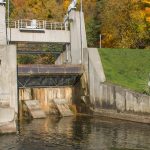Are you planning for retirement in Chile? AFP Habitat plays a vital role in the Chilean pension system. This article examines AFP Habitat’s operations, challenges, and strategies to secure Chilean retirements.
Understanding AFP Habitat’s Role in Chilean Retirement Savings
AFP Habitat significantly contributes to Chilean retirement savings. It has demonstrated consistent growth, fueled by strong revenue generation and a firm market presence. Like any organization, AFP Habitat encounters challenges that influence its future performance and the financial well-being of Chilean retirees.
A History of Growth in a Dynamic Environment
AFP Habitat has exhibited notable revenue growth and maintains a considerable market share within the Chilean pension system. This success is attributable to effective management practices and a commitment to delivering robust retirement solutions. The evolving nature of the Chilean pension system introduces both opportunities and potential obstacles.
Adapting to Regulatory Changes
Chilean pension regulations are subject to constant change. Alterations to withdrawal policies, investment guidelines, and system reforms impact AFP Habitat’s operational framework. The company must proactively anticipate and influence regulatory developments to foster a stable and equitable system for its clientele. Remaining informed about these changes is crucial for effective pension planning.
Strategic Initiatives for Continued Success
To solidify its leading position, AFP Habitat focuses on several key strategies:
- Improving Digital Services: Expanding online platforms to streamline account access and optimize retirement savings management.
- Prioritizing Transparency: Ensuring financial information is readily accessible, clear, and understandable for all stakeholders.
- Engaging with Policymakers: Actively participating in the formation of regulations supportive of its business model and a sustainable pension system.
- Offering Financial Education: Providing resources and guidance to help clients make informed decisions about their retirement savings.
- Focusing on Customer Service: Enhancing the overall customer experience through personalized support and efficient communication channels.
AFP Habitat aims to create innovative solutions, cultivate strong business relationships, and diversify its investment portfolio.
Navigating Competition in the Market
AFP Habitat operates within a competitive landscape, with firms such as AFP Integra also vying for market dominance. To differentiate itself, AFP Habitat must deliver exemplary customer service, offer tailored financial plans, and embrace emerging technologies. Combining superior service with forward-thinking strategies is essential for sustaining market share and fostering growth.
Risk Management Strategies
AFP Habitat monitors several key risk areas:
| Risk Factor | Likelihood | Potential Impact | Mitigation Strategies |
|---|---|---|---|
| Government Regulations | Moderately High | High | Active political engagement, continuous adaptation to new regulations, consultation with expert legal counsel, diversification of investment options. |
| Economic Slowdown | Moderately High | High | Diversifying investments across various asset classes, robust financial planning, stress-testing investment portfolios against different economic scenarios. |
| Increased Competition | High | Moderate | Customer-focused innovation, strategic alliances, superior service quality, personalized financial planning, development of niche products. |
| Technological Change | High | Moderate | Continuous monitoring of technological advancements, proactive adoption of relevant technologies, investment in AI and data analytics, cybersecurity enhancements. |
| Negative Publicity/Reputation | Low | High | Adherence to high ethical standards, transparent communication practices, swift and effective response to challenges, proactive reputation management. |
| Market Volatility | Moderately High | High | Dynamic asset allocation, hedging strategies, regular portfolio rebalancing, active risk monitoring. |
| Inflationary Pressures | Moderate | Moderate | Investments in inflation-protected securities, real estate, and commodities, diversification of investment portfolio, regular monitoring of inflation indicators. |
Effective risk management is vital to ensure the company’s stability and its ability to deliver consistent value to its customers.
Future Outlook
AFP Habitat’s future success hinges on its capacity to adapt to regulatory changes, integrate technological advancements, and maintain a competitive edge.
AFP Habitat: Planning for Retirement in Chile
Key Takeaways:
- Chile offers a choice-based privatized pension system that is complex and requires careful navigation.
- A comprehensive understanding of personal risk tolerance is crucial for informed retirement planning.
- AFP Habitat’s performance should be evaluated within the broader context of the Chilean market and its competitive landscape.
Market Position
AFP Habitat is a leading participant in Chile’s managed pension system, competing with various other AFPs for market share. Its position is reinforced by its commitment to innovation and customer satisfaction.
Understanding Chile’s Pension System
High fees and market volatility can significantly impact investment returns within Chile’s pension system. Recent reforms aim to enhance equity and minimum pensions; however, uncertainties persist.
Evaluating Performance
Analyzing AFP performance requires access to long-term data coupled with a thorough understanding of fund investment strategies. A well-diversified fund approach balances potential returns with risk mitigation. Investors should examine historical performance, management fees, and the fund’s asset allocation strategy.
Factors That Influence Your Choice
Several key factors should influence your AFP selection:
- Risk Tolerance: Accurately assessing your comfort level with market fluctuations is critical.
- Investment Time Horizon: Evaluating the length of time until retirement is a key consideration.
- Fee Structure: Comparing fee structures across different AFPs is necessary to minimize costs.
- Investment Options: Assessing the variety and performance of available investment funds.
- Customer Service: Evaluating the quality of customer support and resources provided by the AFP.
- Fund Performance: Reviewing the AFP’s historical performance and investment strategies.
Long-Term Strategic Considerations
Retirement planning in Chile requires a proactive, long-term strategy. Consider the following:
- Supplemental Savings: Explore additional savings options beyond the mandatory pension contributions.
- Stay Informed: Keep abreast of legislative changes and market trends that may impact your retirement savings.
- Seek Professional Advice: Consult with a financial advisor to develop a personalized retirement plan.
- Diversify Investments: Spread your investments across different asset classes to mitigate risk.
- Regularly Review Your Portfolio: Periodically assess your investment portfolio and make adjustments as needed.
AFP Habitat: Adapting to Pension System Changes
Key Takeaways:
- Chile’s pension system is undergoing a significant evolution, creating new investment opportunities and challenges.
- AFP Habitat is strategically focusing on alternative investments to effectively navigate these shifts and enhance returns.
- A comprehensive understanding of both the risks and opportunities associated with these changes is necessary for informed decision-making.
Navigating Pension Reform
Chile’s pension system is transitioning with reforms that significantly increase the allowed allocation to alternative investments, presenting new avenues for growth.
AFP Habitat’s Strategic Response
AFP Habitat is actively pursuing alternative investments, including infrastructure projects, private equity, and venture capital, to diversify its portfolio and enhance returns. Regulatory uncertainty remains a key challenge.
Mitigating Risks
Investing in alternative asset classes carries inherent risks such as illiquidity, valuation complexities, and regulatory uncertainties. AFP Habitat employs rigorous due diligence processes, diversification strategies, and active risk management techniques to mitigate these risks.
Future-Proofing Strategies for AFP Habitat
Key Takeaways:
- AFP Habitat needs to adapt proactively to a dynamic and evolving market environment.
- Strategic regulatory adaptations and the seamless integration of technological advancements are crucial for sustained success.
- Diversification across asset classes, geographies, and investment strategies is essential for long-term stability and enhanced returns.
Adaptations
How can AFP Habitat ensure secure retirements for Chilean citizens in the face of constant change? Essential Future-Proofing Strategies For AFP Habitat In A Changing Market must address:
- Regulatory Adaptations: Proactive engagement in anticipating regulatory changes and adapting business practices accordingly.
- Technological Integration: Embracing digital innovation to improve operational efficiency, enhance customer experience, and offer personalized services.
- Investment Diversification: Balancing risk and maximizing returns through strategic diversification across various asset classes, geographies, and investment strategies.
- Enhanced Customer Communication: Maintaining open and transparent communication with clients to build trust and foster long-term relationships.
- Focus on Sustainability: Integrating environmental, social, and governance (ESG) factors into investment decisions to promote sustainable and responsible investing.
The future success and stability of AFP Habitat depend on the successful implementation of these forward-thinking strategies.
- How To Create Free Electricity Using Home Renewable Sources - January 30, 2026
- How to Produce Electricity at Home for Energy Independence - January 29, 2026
- How To Create Electricity At Home For Energy Independence - January 28, 2026
















